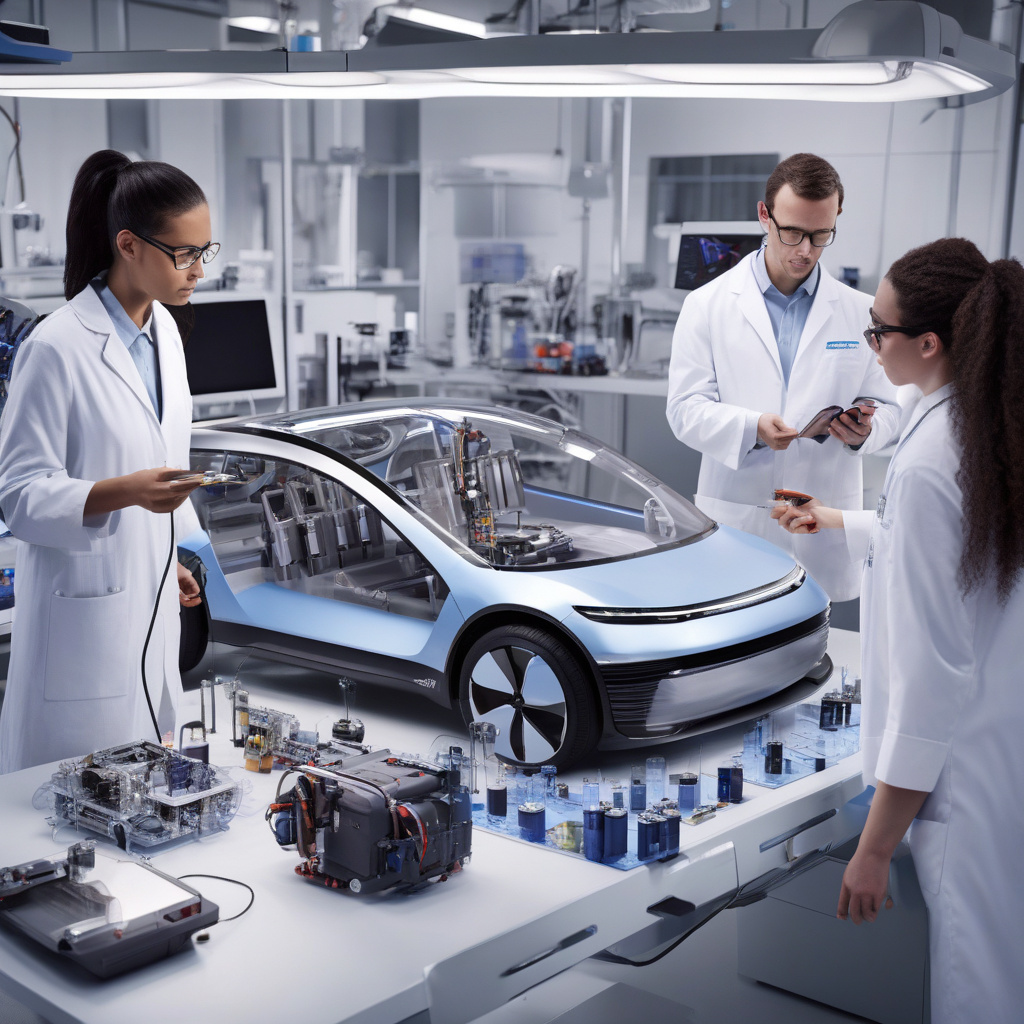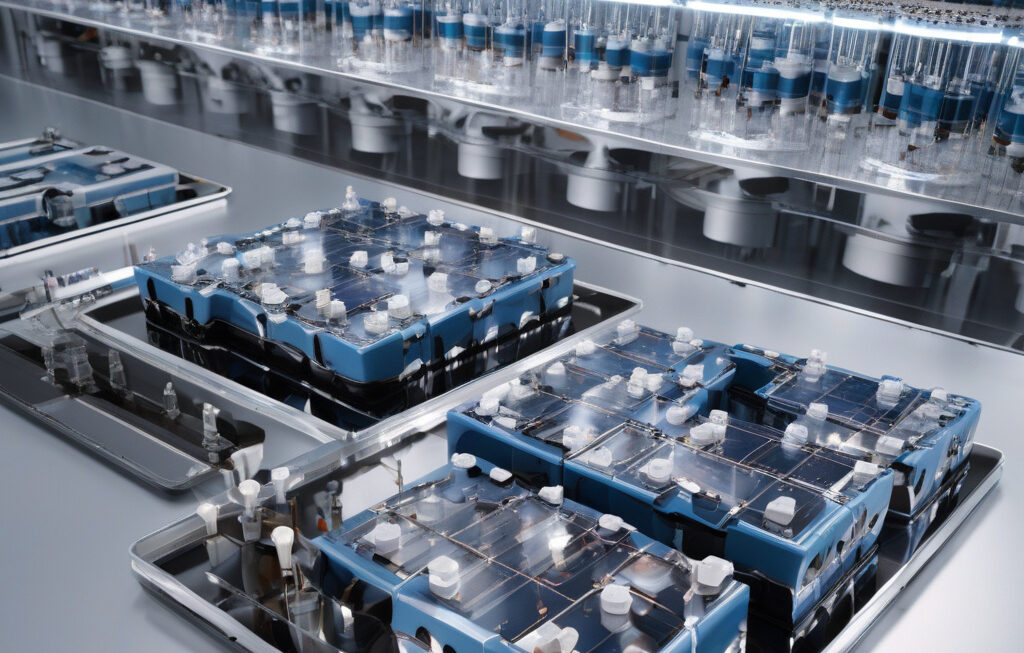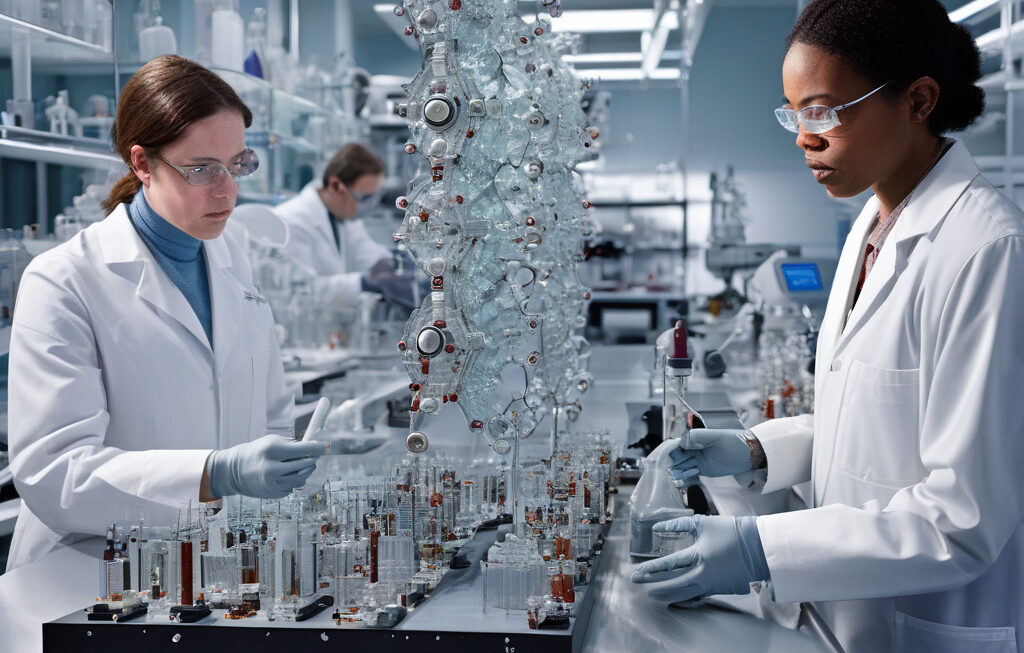Next-Gen EV Batteries Use Solid Electrolytes to Double Lithium Cell Range, Life
A research team from the U.S. has developed an artificial intelligence-based framework that can potentially revolutionize the electric vehicle (EV) industry. The team has made significant strides in enhancing lithium battery technology by incorporating solid electrolytes, paving the way for EV batteries with double the range and lifespan of current models.
Lithium-ion batteries have long been the standard power source for EVs due to their high energy density and relatively light weight. However, these batteries come with their own set of limitations, including concerns over safety, energy efficiency, and overall lifespan. The integration of solid electrolytes in next-gen EV batteries addresses many of these issues and unlocks a host of new possibilities for the future of electric transportation.
Solid electrolytes offer several key advantages over the liquid electrolytes found in traditional lithium-ion batteries. One of the most notable benefits is enhanced safety. Solid electrolytes are non-flammable, reducing the risk of thermal runaway and potential battery fires, a significant concern for EV manufacturers and consumers alike. By prioritizing safety, these new batteries instill confidence in users and accelerate the widespread adoption of electric vehicles.
Moreover, solid electrolytes enable higher energy density, meaning EVs can travel longer distances on a single charge. This increase in range alleviates “range anxiety,” a common deterrent for prospective EV buyers concerned about running out of power before reaching their destination. With double the range, EV drivers can enjoy more flexibility and convenience, making electric vehicles a more appealing choice for everyday use.
In addition to extended range, the integration of solid electrolytes enhances the overall lifespan of EV batteries. Current lithium-ion batteries degrade over time due to chemical reactions between the liquid electrolyte and the electrodes. Solid electrolytes mitigate these reactions, resulting in slower degradation rates and longer-lasting batteries. This improvement in durability reduces the frequency of battery replacements, ultimately leading to cost savings for EV owners and a more sustainable approach to transportation.
The development of next-gen EV batteries with solid electrolytes underscores the importance of continuous innovation in the pursuit of greener, more efficient technologies. As the automotive industry shifts towards electrification, advancements in battery technology play a pivotal role in shaping the future of transportation. By harnessing the power of artificial intelligence and solid-state materials, researchers are pushing the boundaries of what is possible and driving the EV revolution forward.
In conclusion, the incorporation of solid electrolytes in next-gen EV batteries represents a significant milestone in the evolution of electric vehicles. With the potential to double the range and lifespan of lithium cells, these innovative batteries offer a compelling solution to current industry challenges and pave the way for a more sustainable and efficient future of transportation.
electric vehicles, solid electrolytes, lithium-ion batteries, battery technology, AI innovation












